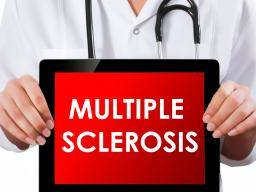Overcoming MS: Tips for recovery from an MS attack

Overcoming multiple sclerosis: Tips for recovery from an MS attack
Last reviewed
By Jenna Fletcher
Reviewed by Alana Biggers, MD, MPH
Multiple sclerosis (MS) can be difficult to predict, making it hard for those with MS to manage the disease. However, there are some changes that people with MS can make to help control the disease and positively impact their overall health.
Many of these changes are simple lifestyle choices that can be made on a daily basis.
Managing the symptoms
Many doctors advise people with MS to take a multipronged approach to managing their MS symptoms. MS symptoms can be managed through medication, physical therapy, and lifestyle changes.
Medications focus on reducing relapses. Reducing the number of relapses increases the amount of time between periods of intense symptoms. Medications also aim to slow the progression of the disease as well as treat bothersome symptoms, such as stiffness and muscle spasms, fatigue, bladder and bowel problems, and sexual dysfunction.
Recovering after an MS flare
People with MS will go through periods of flares, when symptoms are heightened and new symptoms may appear. Flares may be mild and require no treatment other than extra rest, or may be severe enough to require treatment.
 Learning stretches and exercising to strengthen muscles through physical therapy may help people with MS.
Learning stretches and exercising to strengthen muscles through physical therapy may help people with MS.
Serious relapses disrupt the status quo for an MS patient and their family and may cause extreme stress.
When MS symptoms worsen, people should consult their doctor. Medical intervention may be needed to control the relapse.
Medical interventions that may be used during a flare include the following:
- A short course of a high dose of corticosteroids given intravenously
- Plasma exchanges
- Other medications
After a flare, a person with MS may need additional rest and recovery time. If the flare is very severe, consulting with a physical and occupational therapist should be considered to restore mobility and independence.
Lifestyle tips for managing MS
But as well as taking medication, living well with MS includes taking care of physical and emotional well-being. People with MS may adopt a variety of lifestyle changes to help manage their symptoms and stay healthy.
Some things someone with MS can consider doing to manage their symptoms include:
Physical therapy
Many people with MS have physical therapy. A physical therapist can teach a person with MS certain stretches to relieve pain and exercises to strengthen weakened muscles. A physical therapist can also teach people with MS how to perform their daily tasks more easily.
Getting enough rest and practicing proper sleep hygiene
Fatigue from MS can be debilitating. Getting plenty of sleep can help. During a relapse, a person with MS may need even more sleep and rest than normal and should allow for extra sleep time at the end of their day.
Exercising
Getting at least 30 minutes of exercise most days improves cardiovascular health and strengthens weakened muscles. Some forms of exercise such as yoga can also help relieve painful muscle spasms. Exercise can also combat MS-related fatigue and boost mood.
Managing stress
Stress can trigger a relapse of symptoms. Practicing techniques like meditation, journaling, or getting a massage can help keep stress levels in check.
Eliminating caffeine
Caffeine can irritate the bladder and make bladder problems worse, increase urgency, and create other problems.
Practicing scheduled voiding
Going to the bathroom on a set schedule can help train the bladder to hold urine for a longer time, decreasing feelings of urgency.
Seeking support
People with MS can be prone to depression and feelings of isolation and loneliness, especially during a relapse. Those with MS should not hesitate to talk to a counselor or support group to help cope with depression and anger over the disease. Additionally, MS patients should try to build a network of people that can help when the disease flares.
Taking part in leisure activities
Leisure activities and hobbies can drastically improve mental outlook and help manage stress. These types of activities can also improve the quality and enjoyment of life, which are both very important for people with MS.
Avoiding heat
Many people with MS are very intolerant to heat. Avoiding exposure to hot weather can help, as can using fans and air conditioning on hot days.
Diet tips
People with MS should take extra care to eat a healthy diet. As MS is an inflammatory condition, a diet rich in anti-inflammatory foods can help.
 A healthful diet may help people with MS. Foods such as berries, fatty fish, and leafy greens might be included.
A healthful diet may help people with MS. Foods such as berries, fatty fish, and leafy greens might be included.
Some foods have specific health benefits that can help manage MS symptoms. Whole grains, vegetables, and some fresh fruits are high in fiber and can help with bowel problems. Foods rich in omega-3 and omega-6 fatty acid may also help to reduce MS symptoms.
While there is no specific diet that people with MS can follow, some foods support good health:
- Leafy greens, such as spinach, kale, and Romaine lettuce
- Berries
- Fatty fish including salmon and tuna
- Olive oil
- Coconut oil
- Flaxseed
- Whole grains including oats, quinoa, and brown rice
Additionally, certain dietary supplements like vitamin D and biotin may be beneficial for people with MS.
How to help someone with MS
Knowing how to help a loved one with MS can be challenging. Because the disease can be unpredictable, caregivers may have to be adaptable on short notice.
Ways to support a loved one with MS include:
- Accompanying them to doctor's appointments
- Helping with household tasks, such as cleaning, childcare, and preparing meals
- Encouraging hobbies and leisure activities
- Helping with basic care including dressing and bathing during flares
- Offering emotional support and companionship
Caregivers should also make sure that their own physical and emotional needs are met when caring for a loved one with MS. It can be very easy for a caregiver's needs to be neglected while caring for a loved one with a chronic illness.
RELATED COVERAGE
 Famous people with multiple sclerosisMultiple sclerosis is a disease that currently has no cure. Learn how MS changed the lifestyles of some famous faces, including singers, comedians, and talk-show hosts. Find out how they coped with their diagnosis, and get some tips on how to maximize quality of life with MS.READ NOW
Famous people with multiple sclerosisMultiple sclerosis is a disease that currently has no cure. Learn how MS changed the lifestyles of some famous faces, including singers, comedians, and talk-show hosts. Find out how they coped with their diagnosis, and get some tips on how to maximize quality of life with MS.READ NOW Multiple sclerosis: Skin cells may help to repair nerve damageResearchers could be on the verge of a new treatment for multiple sclerosis; they reveal how transplanting neural stem cells derived from a patient's own skin could help to repair nerve damage caused by the disease.READ NOW
Multiple sclerosis: Skin cells may help to repair nerve damageResearchers could be on the verge of a new treatment for multiple sclerosis; they reveal how transplanting neural stem cells derived from a patient's own skin could help to repair nerve damage caused by the disease.READ NOW Best multiple sclerosis blogsMultiple sclerosis blogs are both helpful and inspirational for people affected by the disease. We have selected the 10 best multiple sclerosis blogs.READ NOW
Best multiple sclerosis blogsMultiple sclerosis blogs are both helpful and inspirational for people affected by the disease. We have selected the 10 best multiple sclerosis blogs.READ NOW Multiple sclerosis diet tipsMultiple sclerosis (MS) is a chronic condition that can lead to weakness and memory loss, among other symptoms. Some studies suggest that making dietary changes may help boost a healthy gut flora, which could improve symptoms. Find out more about which foods to eat and which to avoid, and get some lifestyle tips, too.READ NOW
Multiple sclerosis diet tipsMultiple sclerosis (MS) is a chronic condition that can lead to weakness and memory loss, among other symptoms. Some studies suggest that making dietary changes may help boost a healthy gut flora, which could improve symptoms. Find out more about which foods to eat and which to avoid, and get some lifestyle tips, too.READ NOW Could eating more fish lower MS risk?Diets rich in seafood and therefore omega-3 fatty acids bring many health benefits. A new study asks whether omega-3 can lower multiple sclerosis risk.READ NOW
Could eating more fish lower MS risk?Diets rich in seafood and therefore omega-3 fatty acids bring many health benefits. A new study asks whether omega-3 can lower multiple sclerosis risk.READ NOW
 Multiple sclerosis symptoms improved with fruit and vegCan eating more fruit and vegetables help reduce the impact of MS? Find out more.READ NOW
Multiple sclerosis symptoms improved with fruit and vegCan eating more fruit and vegetables help reduce the impact of MS? Find out more.READ NOW

